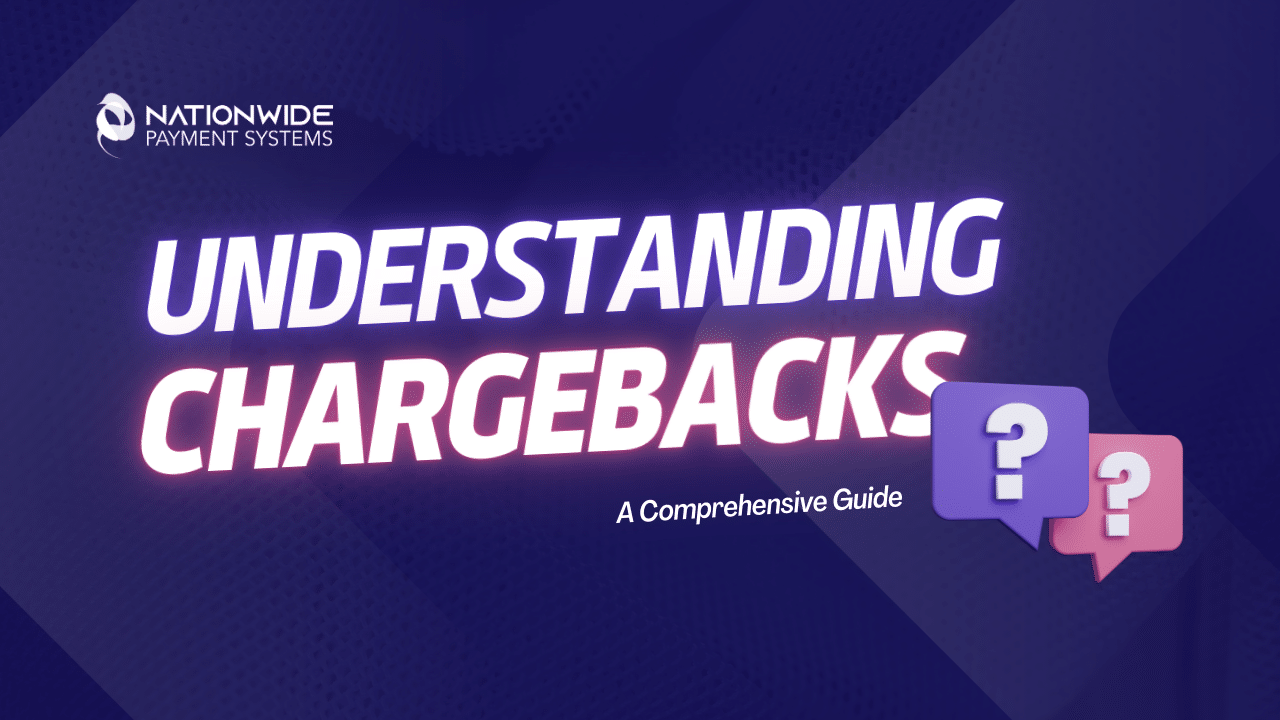Understanding Chargebacks For Business owners

Understanding Chargebacks: A Comprehensive Guide
Chargebacks are a critical aspect of modern financial transactions, impacting businesses and consumers. In essence, a chargeback refers to reversing a credit card transaction initiated by the cardholder’s bank. This reversal can occur for various reasons, including fraud, disputes, or dissatisfaction with the purchased product or service.
Whether you accept credit cards face to face, over the phone, through a text/email link, website, or noncard present, monitoring for chargebacks and replying promptly and correctly is very important. Putting together a rebuttal letter and evidence is very important.
How Chargebacks Work
When a consumer disputes a charge with their bank, the bank investigates the claim and may issue a chargeback if it deems the dispute valid. Upon receiving a chargeback, the merchant’s bank debits the transaction amount from the merchant’s account and credits it back to the cardholder. The merchant then can dispute the chargeback by providing evidence that the transaction was legitimate.
Reasons for Chargebacks
Chargebacks can arise from a myriad of reasons, including:
Fraudulent Transactions: Instances where a cardholder’s information is stolen and used for unauthorized purchases.
Customer Dissatisfaction: Situations where customers are unsatisfied with the quality of goods or services received.
Technical Issues: Errors in processing transactions, such as duplicate charges or incorrect billing amounts.
Subscription Services: Instances where customers need to remember or are unaware of recurring subscription charges.
Identity Theft: Cases where individuals use stolen identities to make purchases fraudulently.
Friendly Fraud:
The Impact of Chargebacks On Businesses
Chargebacks pose significant challenges for businesses, including:
Financial Losses: Merchants lose revenue from the disputed transaction and incur additional fees associated with chargebacks.
Operational Burden: Dealing with chargebacks requires time and resources, diverting focus from core business activities.
Reputation Damage: Excessive chargebacks can tarnish a business’s reputation and credibility, causing a loss of customer trust and loyalty.
Preventing Chargebacks
Best Practices for Businesses
To minimize the occurrence of chargebacks, businesses can implement the following strategies:
Transparent Policies: Communicate refund, return, and cancellation policies to customers to manage expectations. Ensure your website has terms and conditions, privacy policy, and other policies in the footer.
Robust Security Measures: Utilize advanced fraud detection tools and encryption technologies to safeguard against unauthorized transactions. Make sure you have fraud settings set up on your gateway and that your employees are trained.
Prompt Customer Support: Provide responsive customer service to promptly address inquiries and resolve issues, reducing the likelihood of disputes. Answer your phone and emails in a timely manner.
Accurate Descriptions: Ensure product and service descriptions are accurate and comprehensive to ensure understanding.
Check out the page on your website: There should be check boxes stating that the terms and conditions are accepted if all sales are final or if products must be returned in a particular way.
Shipping: Make sure you are not shipping to mail box stores, suites that are mailboxes or to a freight forwarder.
Large Orders: If you get large orders it’s great to get excited to make a big sale, but they should be double checked as these can be fraudulent. Better to be safe than sorry and lose money and product.
What is RDR, Rapid Dispute Resolution:
RDR, or Rapid Dispute Resolution, is designed to swiftly resolve disputes between parties involved, particularly in financial transactions such as credit card payments. The primary objective of RDR is to expedite the resolution process, minimizing the time and resources required to address disputes effectively.
In the context of chargebacks, RDR mechanisms aim to streamline the resolution process by facilitating direct communication between merchants and cardholders. This approach often involves leveraging technology and automation to gather relevant evidence, assess the validity of the dispute, and reach a resolution promptly.
Overall, RDR is an effective tool for enhancing the efficiency and effectiveness of dispute resolution processes in the financial industry, contributing to improved customer satisfaction and trust in the payment ecosystem.
What is a retrieval request?:
A retrieval request is a formal inquiry initiated by a card issuer (usually a bank) to obtain more information about a specific transaction from the merchant. Unlike a chargeback, which involves disputing a transaction and reversing the funds, a retrieval request seeks additional details or documentation to clarify the nature of the transaction.
When a cardholder or their bank raises a concern or question about a particular transaction, they may submit a retrieval request to the merchant’s acquiring bank. The acquiring bank then forwards this request to the merchant, who is expected to provide relevant information or documentation within a specified timeframe.
Common reasons for retrieval requests include:
Transaction Inquiry: The cardholder does not recognize a charge on their statement and seeks clarification regarding the nature of the transaction.
Documentation Request: The card issuer requires additional documentation, such as receipts, invoices, or order confirmations, to verify the transaction’s legitimacy.
Fraud Investigation: Suspected fraudulent activity prompts the card issuer to request supporting evidence from the merchant to investigate further.
Compliance Purposes: Regulatory requirements or internal policies may necessitate collecting specific documentation or information related to a transaction.
What is a retrieval request:
Merchants must respond promptly and accurately to retrieval requests to prevent potential chargebacks or disputes. Failure to provide the requested information within the specified timeframe may result in the card issuer taking further action, including initiating a chargeback on behalf of the cardholder.
Overall, retrieval requests play a crucial role in facilitating communication and resolving discrepancies between merchants and cardholders, ultimately contributing to the integrity and transparency of the payment process.
What are chargeback alerts, Ethoca, and Verifi?:
Chargeback alerts, such as Ethoca and Verify, are proactive solutions designed to help merchants mitigate the risk of chargebacks by providing real-time notification of potential disputes before they escalate into chargeback claims. These services leverage advanced technology and collaboration between card issuers, merchants, and payment networks to facilitate timely communication and resolution of disputes.
Here’s an overview of each:
Ethoca:
Ethoca is a leading provider of chargeback alert services, offering a network that connects merchants and card issuers to facilitate the real-time sharing of transaction data and dispute information. When a cardholder initiates a dispute, Ethoca notifies the merchant immediately, allowing them to address the issue promptly and potentially prevent the chargeback from being filed. Ethoca’s network enables merchants to access comprehensive data and insights to understand the root causes of disputes and implement preventive measures proactively.
Verifi:
Verifi is another chargeback alert service that helps merchants combat fraud and reduce chargeback rates by providing instant notification of disputed transactions. Similar to Ethoca, Verifi alerts merchants when a cardholder initiates a dispute, allowing them to take immediate action to resolve the issue. Verifi’s platform offers customizable alert settings and integration options to streamline the dispute resolution process and minimize the impact of chargebacks on merchants’ operations and revenue.
These chargeback alert services are crucial in empowering merchants to detect and respond to potential disputes in real time, reducing the likelihood of chargebacks and associated financial losses. By leveraging these proactive solutions, merchants can enhance risk management strategies, protect revenue, and maintain positive relationships with customers and card issuers.
Chargeback Vendors?
Do you really need one – busineses should keep chargebacks under .5% if you are over .5% you need to have a chargeback vendor so that you can get alerts and also segment transactions for RDR. At Nationwide Payment Systems we help you decide if you need a chargeback service also so you can respond faster you can get them in a portal or sent to a fax number.
Do you have questions about chargebacks?
Book an appointment with Nationwide Payment Systems and speak with one of our consultants who can guide you on prevention and services.








